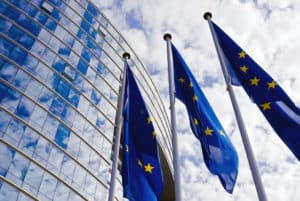 The Czech Presidency has achieved a Mifid II milestone as EU Member States representatives today agreed on its mandate pushing it through to the next stage of discussion.
The Czech Presidency has achieved a Mifid II milestone as EU Member States representatives today agreed on its mandate pushing it through to the next stage of discussion.
In light of this progress, negotiations with the European Parliament can begin with a view to reaching a final agreement on the future legislation. Several Member States have taken it in turns to head up the Mifid council and discussions, however none have reached this stage.
Among the proposals first tabled last week are plans for a close-to-real-time consolidated tape which includes post-trade data together with best bids and offers available at the time of the particular trade. European best bid and offer available at the time of the trade from the most competitive markets will also be included. The lack of pre-trade data in the tape proposals have been labelled by some as unambitious.
“A tape that includes real time post trade data, supplemented with “snapshots” of pre-trade data fails to meet a number of important use cases for the consolidated tape,” said Cboe Europe in a statement.
“However, it is important that the issue of whether or not data needs to be real time has been settled, and we note that the inclusion of snapshots will require market data contributors to provide real time pre-trade data to the consolidated tape provider from its inception. This means that future development of the tape to include real time pre-trade data will not require further technical work by market data contributors.”
Meanwhile, the tape proposal has stayed its course with regards to data contribution exemptions for smaller and independent venues – an area that has proved contentious for those that argue this would fragment the market further.
The proposals also clarify limits on dark trading – a key topic of divergence post-Brexit between the UK and Europe. In the mandate agreed upon today, the Presidency has proposed scrapping the current double volume cap regime and replacing it with a simplified EU-wide threshold of 10%.
The changes, in particular those proposed around dark trading, mark a significant U-turn from the Czech presidency. In its earlier proposal, the it had originally suggested more of an alignment with the UK’s Wholesale Markets Review proposals to relax rules around dark trading by scrapping DVCs for a pool of stocks to assess the impact on price formation.
“Today’s agreement represents a significant improvement over the status quo; it fully mitigates the theoretical risk of a wholesale transfer of liquidity from lit venues to those operating under the reference price waiver, whilst recognising that transparency and price formation can be better enhanced via the introduction of a consolidated tape rather than by arbitrary restrictions on investors’ ability to pursue best execution on EU venues,” Cboe Europe said.
Elsewhere, the draft regulation now set to be negotiated with the EU Parliament suggests a restriction on payment for order flow (PFOF), however, the regulation leaves “discretion” for Member States to allow the practice in their territory should they wish.
The regulation also sets out changes to the deferral regime including instructions that liquidity providers in bonds should not mask price and volume of transactions for very large trades for more than four weeks. For OTC derivatives the proposal sets out plans to calculate deferrals based on a “flexible basis”.
“While we still need to understand the details of the Council agreement, the progress made is clearly a step in the right direction and we commend the Czech Presidency’s hard work for getting this over the line,” said the Association for Financial Markets in Europe (AFME) in a statement.
“AFME members in particular welcome the progress made by Member States in reaching this agreement by recognising the need for investor choice in equities trading mechanisms which will allow for cheaper and more efficient execution to be delivered to end investors. However, imposing artificial limitations on investors’ choice by maintaining a hard volume cap in the level one framework may still hinder the EU’s ability to attract global investors to its markets.”